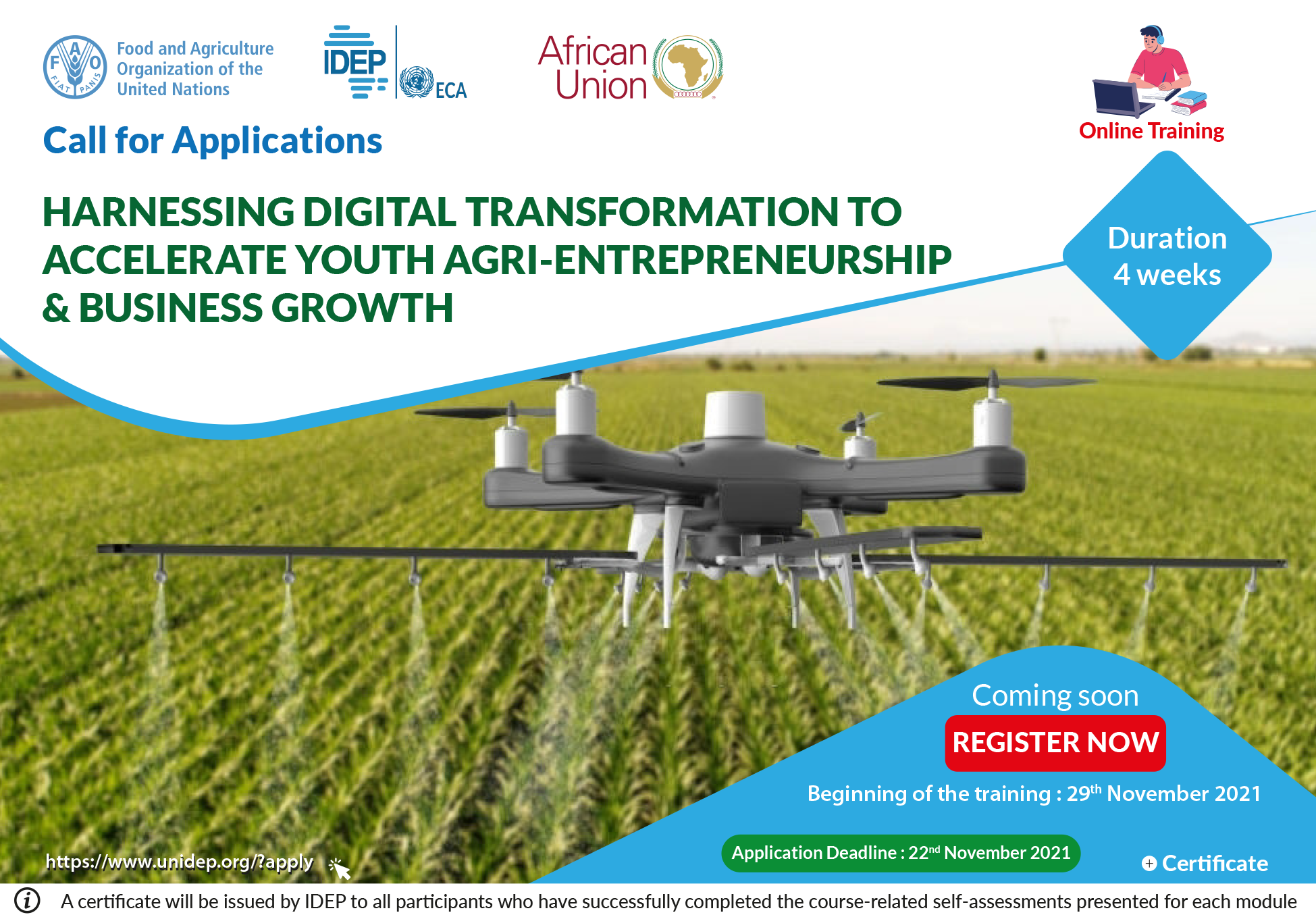Harnessing Digital Transformation to Accelerate Youth Agri-Entrepreneurship & Business Growth
PROGRAM RATIONALE
Agricultural transformation is a priority in the Development Agendas (2030 and 2063) of African governments in their quest to meet the challenges of food and nutrition insecurity, climate change, youth unemployment
and overall economic growth. With the right policies, combining digitalization, innovation and investment, the continent’s agriculture could be transformed into a powerhouse not only to feed a growing population but to create decent employment for millions of young people.
The importance of agriculture for the transformation of the continent is indubitable. The sector offers for now the best prospects for an inclusive growth and employment. As youth underemployment has increased
and generated various socio-economic challenges, governments and development stakeholders need to reengage in innovative strategies, and sound rural and agricultural development policies to effectively
address the employment and growth challenges . The African Continental Free Trade Area (AfCFTA) has what it takes to tackle these challenges by creating more jobs and entrepreneurship opportunities for the
young African population.
In this context, the digitalisation of agriculture is offering diversified opportunities to effectively engage the youth, increase the performance of businesses, boost agricultural transformation and economic growth
(AGRA, 2015; FAO, 2020, World Bank, 2021). Digital agriculture services are being increasingly adopted in African Agriculture. The CTA – Dalberg’s “Digitalisation of the African Agriculture Report” (2019) has
informed that currently at least 33,1 million farmers in Sub-Saharan Africa are reached by these services.
Digital tools help them to have increased access to market, benefit from enhanced advisory services, access to finance, and develop resilience to agro-climatic chocs. While the figure above is still weak compared to
the large population of smallholder farmers in Africa, the trend is increasing, and more and more farmers are benefiting from digital agriculture, especially the younger generation of producers. As a matter of fact,
digital tools have provided strong resilience to many farmers and youth in face of the COVID-19 pandemic (AfDB, 2021 ). This has resulted in calls from a variety of national and international stakeholders such as
the African Union, UN FAO and the African Development Bank, for a stronger investment in digital agriculture.
Digitalisation offers the opportunity to transform businesses, increase their performance and thus generate higher revenues and profits. It also provides climate-smart solutions that help the agricultural sector to
off-set an important part of its carbon footprint. Youth engaging or operating in agribusiness are more in position to better use digital tools to transform their businesses than the older generation of producers and
agribusiness leaders.
Therefore, supporting digital transformation of youth agribusinesses appears as a very effective strategy which will provide catalytic drivers for an accelerated achievement of full employment and sustainable and
inclusive growth as pursued by African countries.
LEARNING OBJECTIVES
- Provide a platform for young people to drive the African Development Agenda in the context of digital agriculture
- Facilitate the understanding of digital agriculture pillars through case studies and analysis of emerging trends
- Demonstrate ICT services and tools’ transformative power for production and access to market for smallholder farmers, agricultural cooperatives and agripreneurship activities
- Facilitate the development of digital strategies and services for youth agribusinesses
- Read more...
- You can register via the below link Applications: or the following file form and return it to Diaw4@un.org( Please rename the file with the name of the course)
- Apply online ...
